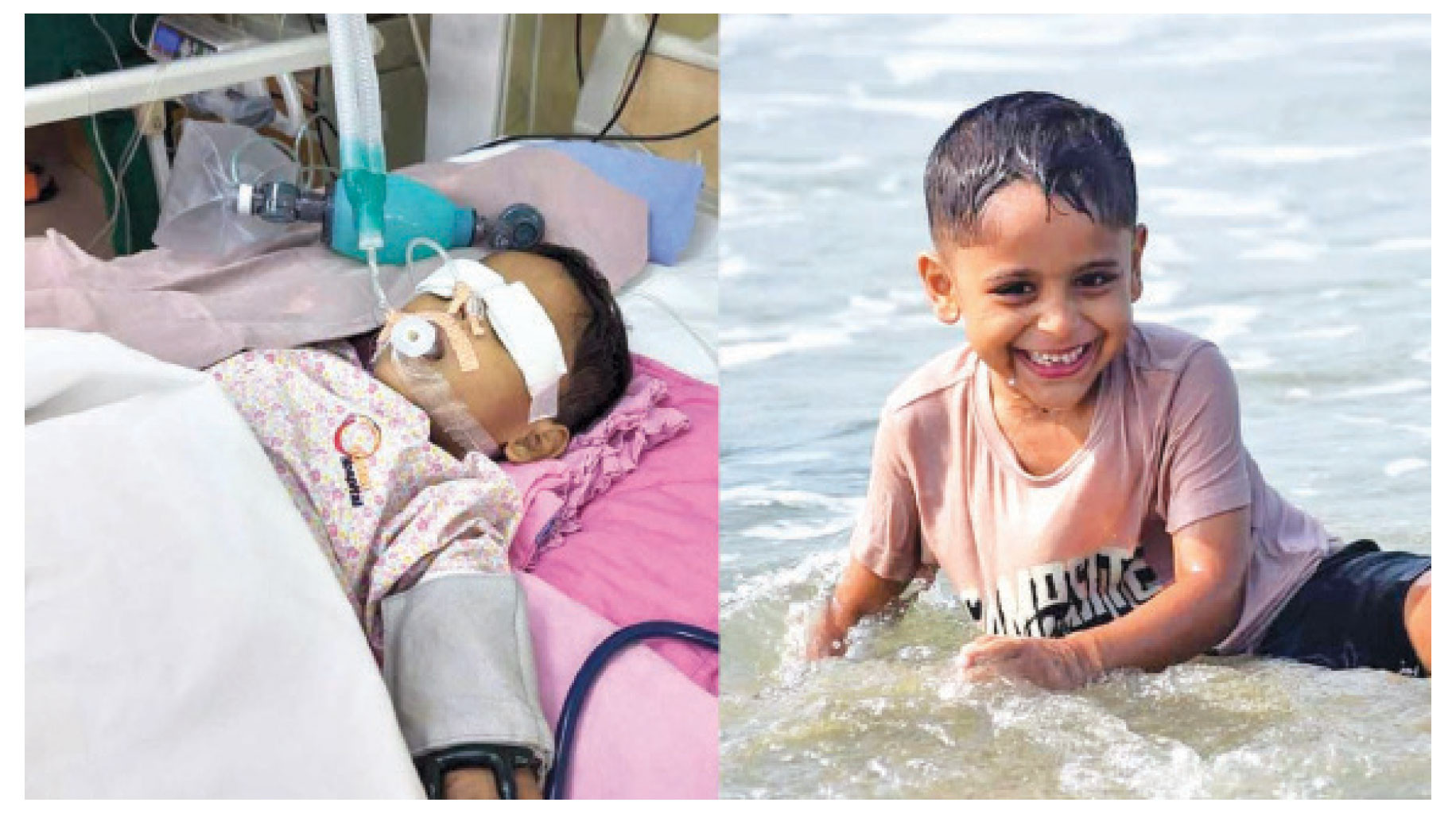Ethics, Accountability, Justice – A Prescription for Healing an Ailing Healthcare System
Exploring Horizons
Published: 12 Jan 2024

Ayaan Ahmed-Photo : Collected
The tragic death of five-year-old Ayaan Ahmed at United Medical College Hospital in Dhaka’s Badda area has once again exposed a healthcare system in dire need of healing. This heart-wrenching incident serves as a poignant reminder of the all-too-frequent fatalities resulting from medical negligence in our country.
The untimely demise of nursery student Ayaan after a routine circumcision procedure underscores a deeper issue – the systemic failures within the healthcare infrastructure – that demands immediate attention. The absence of proper consent procedures and the subsequent transfer of the unconscious child between hospital branches highlight the lack of standard operating procedures and communication within medical institutions, pointing towards a shocking disregard for patient well-being.
The callousness exhibited by some healthcare professionals raises questions about accountability and the need for punitive actions.
Ayaan’s father, Shamim Ahmed, has rightfully demanded the revocation of the hospital’s licence, emphasising the potential risk to more lives if corrective actions are not taken promptly. His demand echoes the frustration of many who have suffered due to medical negligence.
The demand for the arrest of accused doctors by organisations like Shastho Surokkha Andolon reflects public frustration and the urgent need for accountability. However, the response should be measured, ensuring a fair and transparent investigation. The 48-hour ultimatum issued by the organisation on Wednesday may be driven by emotion, but a thorough investigation into the case is crucial to avoid any miscarriage of justice.
The government must play a proactive role in ensuring justice and safeguarding the lives of its citizens. The formation of an investigation committee by the Directorate General of Health Services (DGHS) is a step in the right direction. However, it must be accompanied by swift and decisive actions, including punitive measures against those found responsible for medical negligence. The government must send a strong message that such incidents will not be tolerated, and those found guilty will face severe consequences.
The stark reality is that doctors in Bangladesh rarely face consequences for medical negligence. The Bangladesh Medical and Dental Council (BMDC) has a history of minimal punitive actions, with only 14 doctors facing consequences throughout its existence, according to media reports.
The legal framework surrounding medical negligence in Bangladesh appears ambiguous, contributing to the lack of accountability. The existing provisions, such as Section 304A and Sections 336 to 338 of the Penal Code 1860, offer limited avenues for justice, according to legal experts. The 2009 Consumer Rights Protection Act, while providing some safeguards, does not comprehensively address the complexities of medical negligence, they say.
The role of the BMDC in investigating allegations against doctors is crucial, but its effectiveness is questionable. Allegations of medical negligence often fall through due to a lack of documentation from complainants. The public’s lack of confidence in the BMDC pushes them to file cases with the police, further muddying the waters.
Legal ambiguity surrounding medical negligence is a critical impediment to justice. The absence of specific laws addressing medical negligence hinders the legal process, leaving aggrieved patients and their families without a clear path to justice. Establishing a comprehensive legal framework specifically for medical negligence is imperative to hold healthcare professionals accountable.
The majority of medical negligence grievances in Bangladesh proceed to courts, either as civil or criminal cases. However, due to a deficient legal framework, doctors are seldom held responsible even by the courts. Some healthcare professionals argue that resorting to criminal courts to address medical negligence exacerbates problems by fostering a lack of transparency in the healthcare sector.
A well-defined legal framework would enable the BMDC to take swift and effective disciplinary measures against errant doctors.
Besides, restoring public confidence in the BMDC and streamlining the complaint process is crucial for ensuring that cases of medical negligence are thoroughly investigated and addressed.
The role of physicians is not merely a profession but a noble calling, charged with the sacred responsibility of preserving and enhancing human life. Upholding professional ethics within the medical community is therefore paramount, especially in curbing the alarming instances of medical negligence. Many recent incidents, notably Ayaan’s tragic death, underscore the importance of ethical standards in the healthcare system in Bangladesh.
Doctors, as custodians of health, must prioritise ethical practices and moral standards above all else. The commitment to professional ethics goes beyond legal obligations; it is an ethical duty to treat patients with the utmost care, empathy and skill. By doing so, doctors not only honour the trust bestowed upon them by society but also contribute to the overall improvement of healthcare standards.
Hospital authorities must play a pivotal role in fostering a culture of ethics by promoting continuous training, monitoring and accountability. Emphasising the sanctity of the doctor-patient relationship and instilling a sense of duty towards patient welfare are central tenets of ethical medical practices.
Without a commitment to these principles, the healthcare system remains vulnerable to lapses, and restoring public trust becomes an uphill battle. Therefore, a collective dedication to ethical conduct is not only an ethical imperative but a fundamental step towards preventing medical negligence and building a robust healthcare system.
_____________________________________
The writer is News Editor of the Daily Sun

